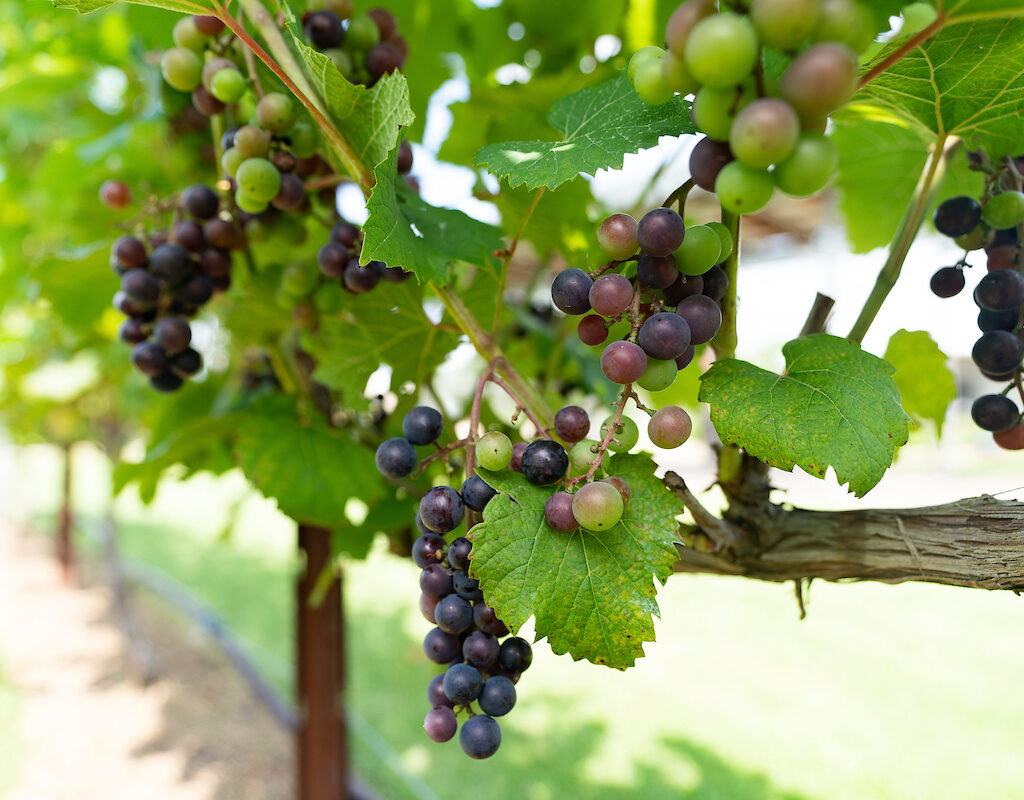
Overview
Contact
College Station, TX 77843
M-F 8:00 a.m. – 5:00 p.m.
Texas is home to over 520 wineries and more than 4,500 acres of vineyards — making it the fifth leading wine-producing state in the nation. Each year, the Texas wine and grape industry provides $13.1 billion in economic value to the state and adds more than 104,000 full-time jobs that account for $4.3 billion in wages.
To help this vital industry thrive in our state, we must educate its future leaders and advance the science of grapes and wine. The Texas A&M AgriLife Extension Service educates growers and wine producers and conducts applied research on vineyards, insect and disease management, selection of adapted grape varieties, wine processing, and wine quality.
Viticulture and Enology Certificate
The new Viticulture and Enology Certificate program provides formal training to help students launch successful careers in the wine industry. The program also offers a variety of educational programs such as workshops, field days, seminars and wine tastings, as well as a well-developed applied research program.
Recorded Enology Webinars
To help support the wine industry with pertinent, up-to-date scientific information, Texas A&M AgriLife Extension Service has created the Enology Webinar Series. This series features national and international enology specialists who cover various subjects relevant to the Texas wine industry and the winemaking community in general. Most of the presentations are recorded and posted to the Enology YouTube channel.
Dr. B Talks Texas Wine
Another initiative aimed at supporting the Texas winemaking industry is the Dr. B Talks Texas Wine video library. The library includes a series of short video clips that introduce the grape and wine varieties that grow well in Texas and that have the potential to produce exceptional wines. The goal of the series is to encourage Texas wine consumers to learn more about lesser known grape and wine varietals and give them the confidence and desire to try them.
More choices in Crops & Produce
- Publication
Today Master Gardeners are active in all 50 U.S. States and eight Canadian provinces. The heart of the Texas Master Gardener program is the dedicated, passionate volunteers who are willing to share their knowledge with anyone interested. 2019 Edition.
- Publication
Created by teachers, this multifaceted garden, nutrition, and physical activities curriculum is evidence-based and academically rich.
- Publication
Set of five children’s books featured in the Learn, Grow, Eat & Go! curriculum.
- Publication
This 4-week curriculum equips early childhood teachers with daily engaging lessons, group activities, and journal prompts to enrich your classroom while making learning fun!
- Course
Prepare to take the Private Pesticide Applicator Exam administered by the Texas Department of Agriculture with this course designed for pesticide applicators in Texas. Private pesticide applicators use or supervise the use of restricted-use or state-limited-use pesticides or herbicides to produce an agricultural commodity.
- Course
Any plant growing in the wrong place can be a weed. Crepe myrtles growing on a putting green would certainly be weeds. The same goes for bermudagrass growing in flower. Learn the basics of identifying and controlling weeds, as well as cultural practices, equipment, and application and reading labels correctly.
